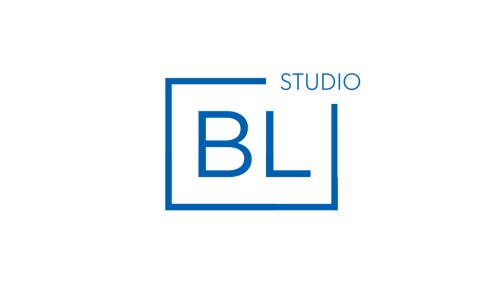Best Debt Capital Markets Lawyers in Florence
Share your needs with us, get contacted by law firms.
Free. Takes 2 min.
List of the best lawyers in Florence, Italy
About Debt Capital Markets Law in Florence, Italy
Debt Capital Markets (DCM) refer to the area of finance where companies, public institutions, and governments raise funds by issuing debt securities to investors. In Florence, Italy, DCM is a critical element for both corporate growth and public financing. Businesses, banks, and public entities may issue bonds, debentures, or other debt instruments to obtain capital, while investors receive fixed or variable returns in exchange. The DCM sector in Florence is influenced not only by Italian national law and EU regulations, but also by local financial practices and the operations of regional institutions.
Why You May Need a Lawyer
Engaging in the Debt Capital Markets involves complex legal considerations. A lawyer specializing in DCM in Florence can assist you in situations such as:
- Structuring and arranging bond issues for corporations, municipalities, or other entities
- Navigating the regulatory requirements for issuing or investing in debt securities
- Drafting or reviewing prospectuses and offering documents
- Handling syndication, underwriting, and distribution agreements
- Managing compliance with domestic and EU securities law
- Representing clients in disputes related to debt instruments or market conduct
- Advising on taxation issues related to debt issuance and investment
- Assisting with cross-border transactions involving Italian and international markets
Legal counsel is essential in avoiding pitfalls, ensuring lawful operations, and protecting stakeholders’ interests throughout the DCM process.
Local Laws Overview
In Florence, the legal landscape governing Debt Capital Markets is shaped by a combination of national Italian law, EU directives, and specific local implementation practices. Key elements include:
- Italian Consolidated Law on Finance (Testo Unico della Finanza - TUF): The TUF regulates public offerings, listing requirements, securities trading, and investor protection.
- CONSOB: The Italian Securities and Exchange Commission supervises the market, enforces transparency, and authorizes prospectuses. All public offerings and debt issuances must comply with CONSOB requirements.
- Bank of Italy: Supervises the financial system, including rules on prudential requirements for banks participating in DCM activities.
- EU Regulations: Directives such as MiFID II, the Prospectus Regulation, and the Market Abuse Regulation directly affect interoperability with EU financial markets and set minimum standards for Florence-based issuers and investors.
- Borsa Italiana: The main Italian stock exchange handles the listing and trading of bonds and other debt instruments, with its own listing and transparency regulations.
It is vital for anyone participating in DCM transactions in Florence to understand these laws and ensure all documentation, disclosures, and procedures are compliant.
Frequently Asked Questions
What are Debt Capital Markets?
Debt Capital Markets are financial markets where organizations raise money by issuing debt instruments such as bonds, notes, or debentures to investors.
Is it possible for a foreign company to issue bonds in Florence?
Yes, but foreign issuers must comply with both Italian and EU regulations on public offers, register with the proper authorities, and meet prospectus requirements.
Who regulates debt issuances in Florence?
CONSOB regulates the issuance and trading of debt securities, while the Bank of Italy oversees prudential aspects for financial institutions.
What is a prospectus and is it always required?
A prospectus is a formal legal document providing details about a securities offering. It is usually required for public offerings unless the issue qualifies for an exemption under Italian or EU rules.
Can individuals invest in bonds on the Italian market?
Yes, individuals can invest in bonds either directly on the Borsa Italiana or through banks and investment platforms, subject to risk disclosure requirements.
What risks are associated with Debt Capital Markets?
Risks include issuer default, interest rate fluctuations, liquidity concerns, and regulatory changes.
What happens if an issuer defaults on a debt instrument?
Investors may lose a part or all of their invested amount. Legal action may be possible, but recovery depends on the issuer’s assets and insolvency procedures.
How are interest and returns on bonds taxed in Italy?
Taxation of bond interest and capital gains depends on the residency status and type of bond, with specific rates and exemptions outlined in Italian tax law.
Can a company restructure its debts on the capital markets?
Yes, debt restructuring or refinancing is possible, but it often requires consent from bondholders and may involve complex negotiations and regulatory notifications.
When should I consult a lawyer regarding Debt Capital Markets?
You should consult a lawyer before issuing bonds, participating in significant investments, or if you are involved in a dispute or regulatory investigation.
Additional Resources
The following resources and institutions offer information and support concerning Debt Capital Markets in Florence:
- CONSOB (Commissione Nazionale per le Società e la Borsa): The main Italian regulatory authority for securities markets, offering regulations, guidelines, and investor alerts.
- Bank of Italy (Banca d’Italia): Supervises the stability of the Italian financial system, providing updates on regulations and market statistics.
- Borsa Italiana: The Italian stock exchange, listing rules, and market information for bonds and other debt instruments.
- Order of Lawyers of Florence (Ordine degli Avvocati di Firenze): Provides contacts for local legal professionals specializing in financial and securities law.
- Chambers of Commerce: Offers business support services and information on local investment opportunities and compliance.
Next Steps
If you need legal assistance related to Debt Capital Markets in Florence, Italy:
- Identify your specific legal needs, whether you are an issuer, investor, or intermediary.
- Gather all relevant documents, financial records, and details about the transaction or legal issue.
- Contact a qualified lawyer specializing in Debt Capital Markets and securities law in Florence, ideally one familiar with local practices and regulatory authorities.
- Request an initial consultation to discuss your situation, receive a legal assessment, and understand your options.
- Stay informed about ongoing regulatory changes by following updates from CONSOB and the Bank of Italy.
Getting timely, specialized legal advice ensures compliance, reduces risk, and maximizes your opportunities in the Debt Capital Markets sector of Florence, Italy.
Lawzana helps you find the best lawyers and law firms in Florence through a curated and pre-screened list of qualified legal professionals. Our platform offers rankings and detailed profiles of attorneys and law firms, allowing you to compare based on practice areas, including Debt Capital Markets, experience, and client feedback.
Each profile includes a description of the firm's areas of practice, client reviews, team members and partners, year of establishment, spoken languages, office locations, contact information, social media presence, and any published articles or resources. Most firms on our platform speak English and are experienced in both local and international legal matters.
Get a quote from top-rated law firms in Florence, Italy — quickly, securely, and without unnecessary hassle.
Disclaimer:
The information provided on this page is for general informational purposes only and does not constitute legal advice. While we strive to ensure the accuracy and relevance of the content, legal information may change over time, and interpretations of the law can vary. You should always consult with a qualified legal professional for advice specific to your situation.
We disclaim all liability for actions taken or not taken based on the content of this page. If you believe any information is incorrect or outdated, please contact us, and we will review and update it where appropriate.











